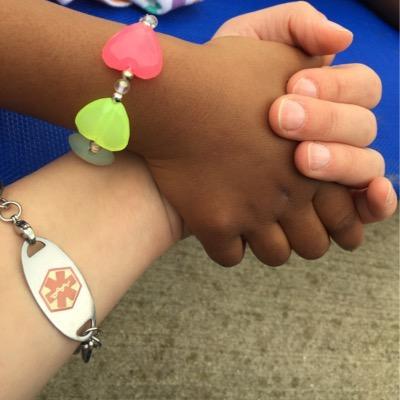Last weekend, I saw MLK quotes making the rounds on social media. Many of my Facebook friends freely shared graphics featuring some of King's powerful, determined expressions and overlapped with favorite quotes about peace.
I was deeply disturbed by this for two reasons. First, Dr. King did speak of harmony and peace, but he also spoke about injustice, about inequality, about how evil racism was. Second, these same friends post nothing, I mean nothing, about racial injustice the rest of the year.
I get that race is an uncomfortable topic. I get that sometimes it's easier not to say (or share) anything because often we don't know how our words will be received by others. I get that videos of kittens pouncing on a bed or your kids belting out a tune at the spring concert are easier to share than the story of twelve-year-old Tamir Rice being murdered in a park by police. I get that as a white person, speaking of peace is more comforting than acknowledging the slaying of people of color, the waving of the Confederate flag, the blatant disregard for people of color when it comes to Oscar nominations.
I'm a white woman. My children, all of whom are black, were adopted at birth. We live thirty minutes from Ferguson where Michael Brown was killed, and we live two hours from Columbia, Missouri where the Mizzou president stepped down after being called out for ignoring the racial tensions occurring on campus. Though our family is overwhelmingly loved and accepted in our community, I'm well-aware that my children will face injustices that my white privilege umbrella will not always be able to shield them from. Even now at their young ages (seven, five, and three), they have had to deal with prejudice that I haven't and never will.
Take for example the time my toddler son was called a "cute little thug" by an acquaintance. Or the time my girls were riding bikes in our driveway and a young man in a pickup drove past our home and hurtled the n-word twice.
There are micoaggressions, like white people who try to touch my girls' cornrows out of curiosity. Strangers sometimes assume that my kids' birth parents were young, on drugs, and promiscuous or that my children were adopted from foster care. (Note: there are far more white children in foster care than black children.) The ballet studio one of my daughters used to attend required the three year olds (yes, at three) to wear their hair in a slicked-back bun, a hairstyle not conducive to natural black hair, and wear "skin tone" tights (which, of course, was a creamy-white color). One person joked that of course my daughter likes to dance, after all, it's "in her" as a black person.
These examples, both deeply disturbing to mildly annoying, are reminders that the peace quotes some of my white friends like to promote is a half-hearted attempt to make themselves feel better about being white in a racially tense America. It's a means of sugar-coating a not-so-sweet reality. It's a way of looking at racial tensions through rose-colored, or should I say white-colored, glasses.
What I want my white friends to know is that the only way to experience true peace is to have authentic, honest, open-hearted and open-minded relationships with people of color. It requires you to listen and learn, not trying to brush the hardships under the proverbial rug. It requires getting to know someone and talking with them, not at them or past them. It requires stepping down off the pedestal that society puts under those with less melanin in their skin and acknowledging that white privilege is real and race isn't a card. Colorblindness doesn't exist, and race should be celebrated, not ignored.
Conversations about race will be uncomfortable. Listening to all of Dr. King's messages, in full and understanding the context, requires courage and pride-swallowing. Experiencing empathy for families who lose their black boys and men is necessary. In a society that promotes opinion-slinging, to really get it, to really understand, you have to shut up and accept the full experience, not just the parts you want to hear.
Listening and learning from people of color will require you to be brave, humble, and mindful. You will not always say and do the right thing, but doing something is better than passivity and ignorance and apathy. Dr. King said it best: "Our lives begin to end the day we become silent about things that matter."
We have eleven months until the next MLK holiday, and I want to encourage my white friends to take the first step toward true peace, even when they struggle to understand and see the whole staircase.


